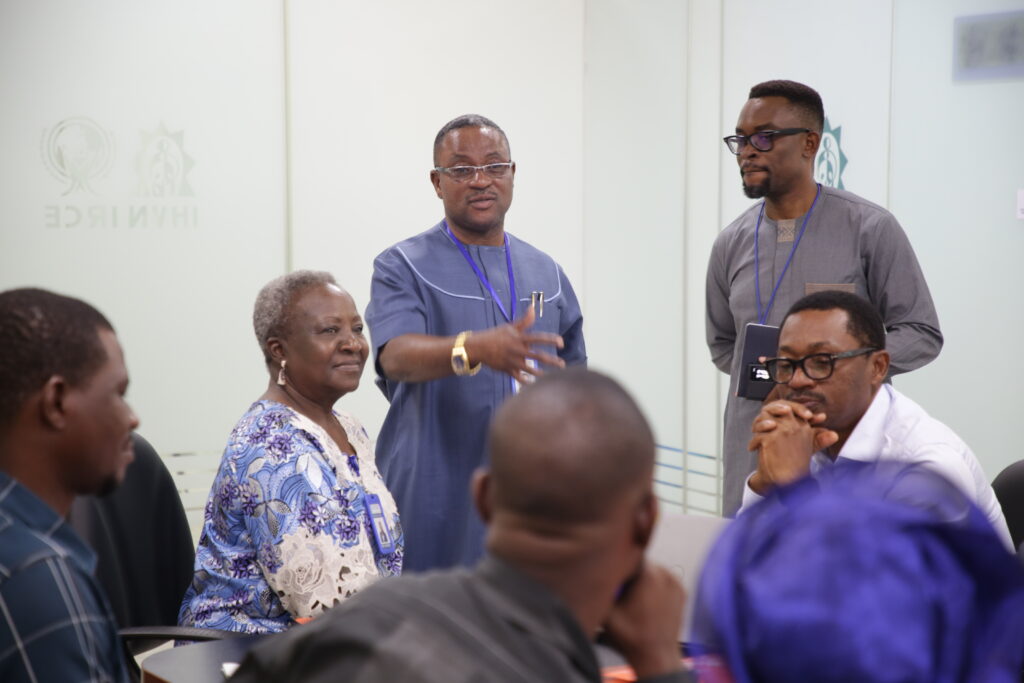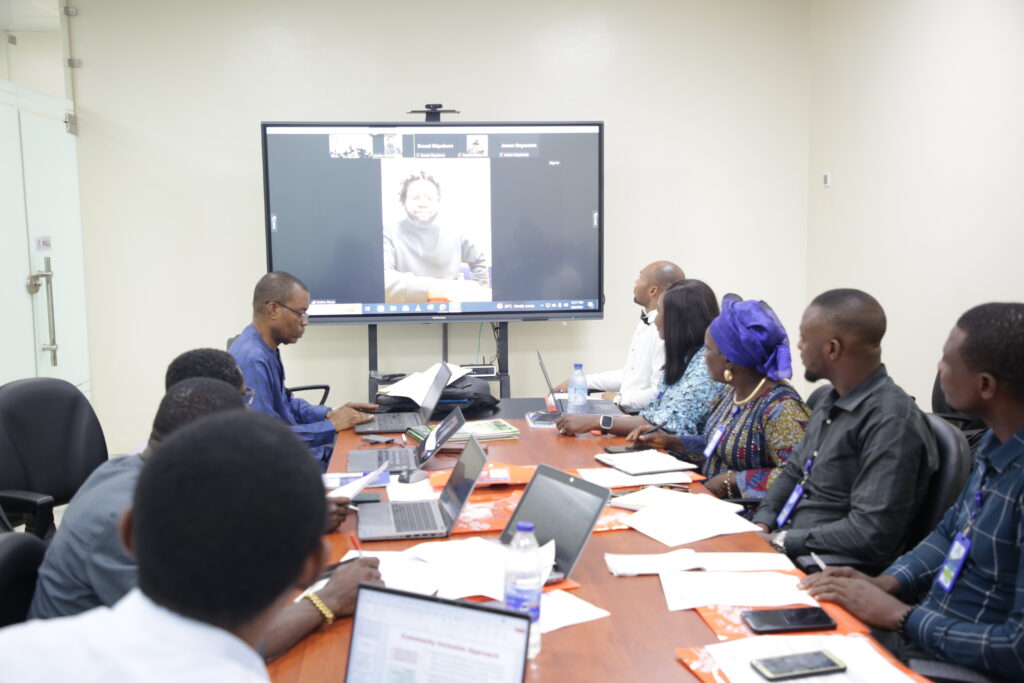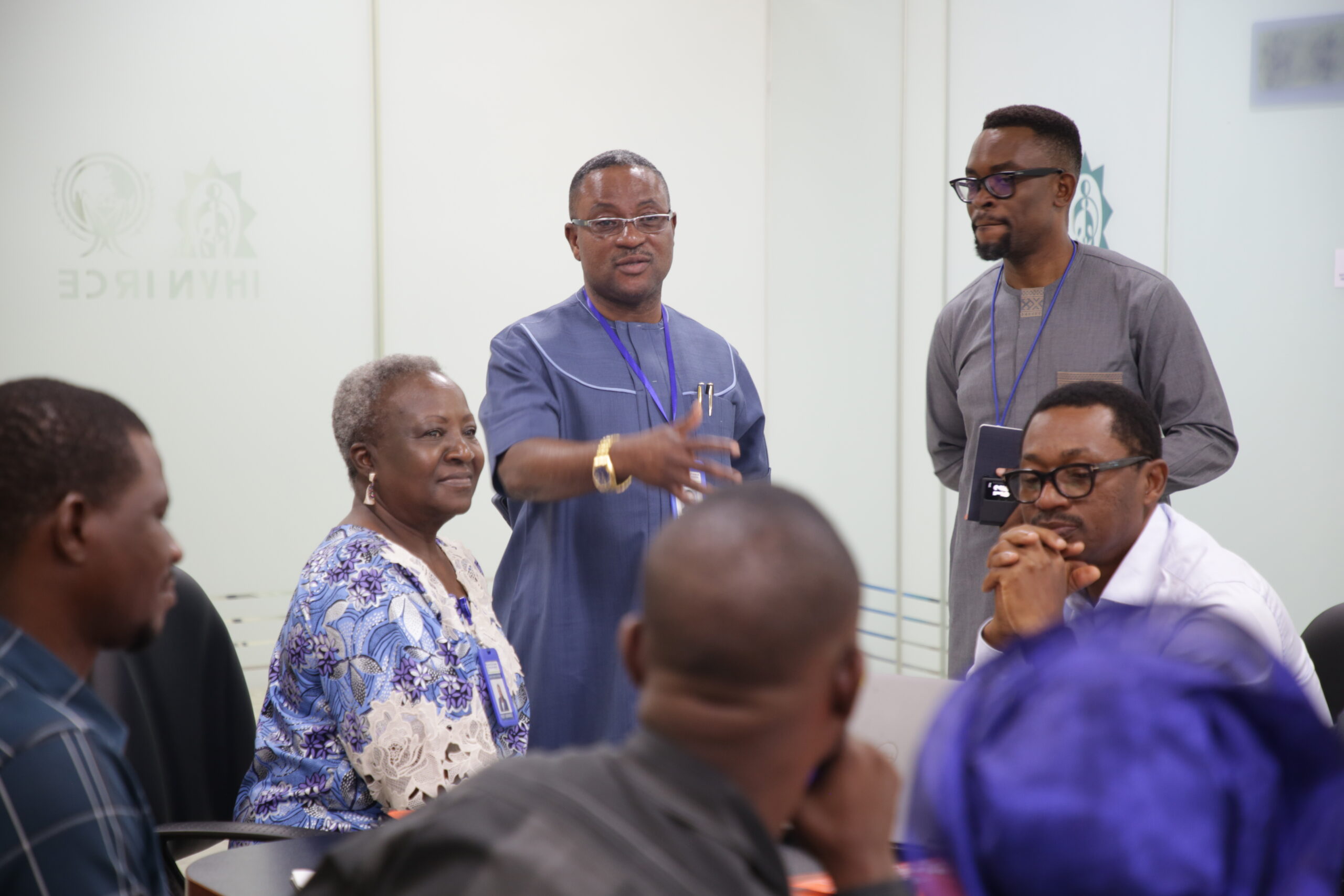The International Research Center of Excellence (IRCE) at the Institute of Human Virology Nigeria (IHVN) has met with community-based organizations to discuss the BRILLIANT HIV Vaccine Consortium project.
The BRILLIANT Project is funded by USAID and seeks to spearhead HIV vaccine development, and conduct pre-clinical studies to determine promising vaccines and finally conduct clinical trials to evaluate the efficacy of vaccines in humans. The project runs from 2023-2029 in Nigeria, Uganda, Kenya, Tanzania, Zimbabwe, Zambia, Mozambique, and South Africa.
At the meeting, the community stakeholders in Abuja, the Nigerian Project’s Principal Investigator, and IRCE Executive Director, Prof. Alash’le Abimiku stressed the need for accurate information dissemination about HIV Vaccines. She said that Community-Based Organizations (CBOs) have a role to play in advocating for HIV prevention strategies such as abstinence and safer sex practices.
The Principal Investigator elaborated that the project has a multi-phasic approach from Phase 1 to Phase 4 starting with low-risk populations as initial participants to test safety and immunogenicity, and progressively and extending to high-risk populations in subsequent phases to assess how well the vaccine protects against infection.
She indicated that the prevalent HIV subtypes in West Africa, which is sub-type G and CRF02 recombinant, will be considered during the development of the vaccine candidates.
The meeting was also to assess the capacity and organizational structure of the community-based organizations for partnership while establishing pathways for the implementation of additional activities emerging from the BRILLIANT consortium.
The Country Lead for the Community Engagement Advocacy and Communications (CEAC) Workstream, Mr. Musa Aminu, guided the community-based organizations through strategic approaches aimed at enhancing community engagement and effective science communication. He explained that strategic approaches to be identified include, mobilization of gatekeepers, and creation of communication materials in local languages, including resources adapted from the broader consortium CEAC.
The six (6) CBOs present included the International Centre for Advocacy on Rights to Health (ICARH), Network of People Living with HIV/AIDS in NIGERIA (NEPHWAN), Catholic Action Committee on HIV/AIDS (CACA), AFRIhealth Optonet Association (AHOA), Centre for Family Health Initiative (CFHI), and Jomurota Community Care Initiative (JCCI). Each CBO provided an overview of their history in HIV prevention programs and clinical trials, enabling the BRILLIANT study team to inquire about their experiences, capacities, and the specific populations targeted for the BRILLIANT study.



